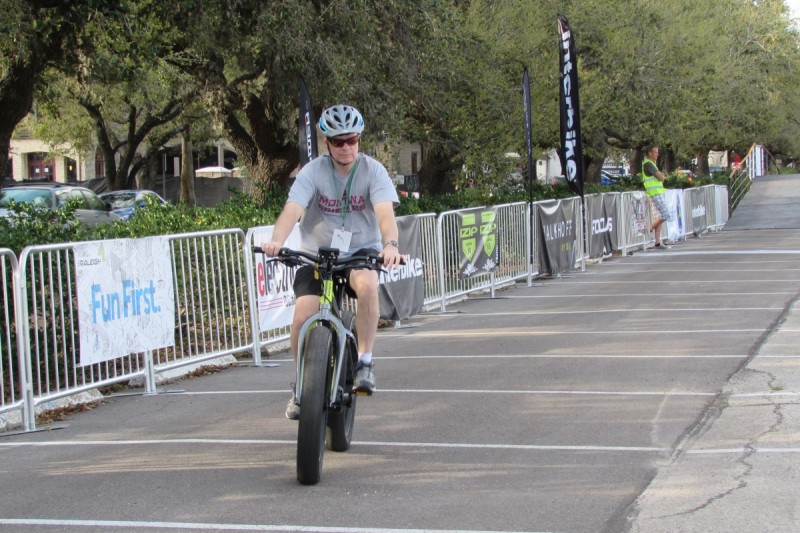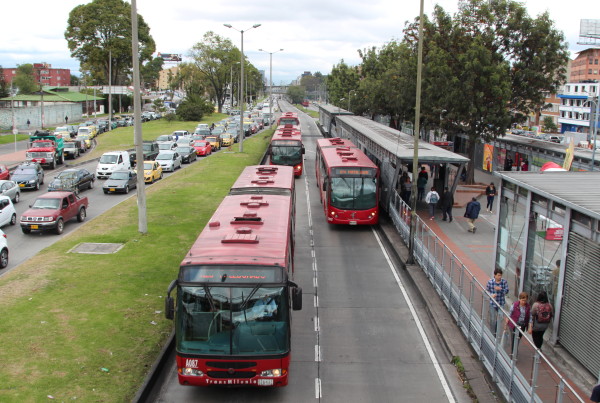This story originally appeared on Houston Public Media.
At a big cycling event in the Med Center, they were talking about something that’s fairly common in other parts of the world but somewhat new to Houston.
It was at the Texas Trails and Active Transportation Conference that we met Robin Stallings, the executive director of Bike Texas. He was excited to tell us about the latest trends in electric bikes.
Stallings says for people who don’t like to pedal all the time, having that extra little bit of power can make all the difference between putting another car on the road or hopping on a bike.
“You take up less footprint, less space, you have fewer parking issues,” says Stallings. “ And you save a ton of money on gasoline and car payments and insurance.”
Electric bikes have been around for well over a century. The first patents were issued in the late 1800’s and they’ve been in production for decades. It’s estimated there are tens of millions of electric bikes in China. They’re popular in Europe too. And as the roads grow more crowded, there’s a push to get Houstonians interested.
We learned more at the recent Electric Bike Expo at Rice University. Cyclists had the chance to try out the bikes on a closed track, with a couple of hills for the more adventurous. There were city bikes for commuters, mountain bikes, and folding bikes that don’t take up a lot of space.
Austin bike dealer Chel Mitchell says electric bike sales have grown by about 20% over the past couple of years.
“People are looking at these as car replacements now, instead of getting into their car and driving to the grocery or whatnot,” says Mitchell. “Your three-to-five mile jaunts, they’ll get on an e-bike and go enjoy themselves. They’re also good for exercise or recreation.”
When it comes to replacing your car with something that will give you a workout, there’s also the electric cargo bike. It’s a heavy-duty bike with a rack on the back and you can put whatever you want on it. Bike Expo spokesman Pete Prebus says you can use a cargo bike to safely carry work equipment. You can even load up a couple of kids and some grocery bags.
“In some areas people have moved their households by bicycle,” says Prebus. “Places like Portland, Oregon and the Bay Area. They have fun with the bikes.”
So if you’re thinking about an electric bike, how much is that fun going to cost? Prebus says a basic e-bike starts at about $1,500. High-end models can go up to $10,000.
And how exactly do the bikes work? Prebus says the bike’s small motor is powered by battery. While there are some bikes that recharge by pedaling, Prebus says most of them are similar to an electric car.
“You’re charging the battery pack from the electrical outlet and it takes three to six hours to charge the battery pack,” explains Prebus. “For most electric bikes you’re getting between probably 20 and 35 miles of range, depending on how much pedal power you’re putting into it or how much electric motor you’re using.”
But since it has a motor, do you need a special license?
“It really simulates what a bicycle is intended to be, as a relatively slow-speed two-wheeled vehicle,” says Prebus. “In general that’s the really cool thing about an electric bike is that you don’t have to have a license or insurance or all the other things that go along with a moped or a motorcycle.”
As they came off the track, we chatted with some of the people trying out the electric bikes. Rice University grad student Mackenzie Brewer thinks an e-bike would be a great way to get to campus. She adds it would be nice to have some extra power during the hot summer months.
“Even thinking about getting to work, when I don’t necessarily want to show up really hot and sweaty, I think that would help the situation a little bit,” says Brewer.
And that’s what cycling advocates are betting on, as Houston continues to look for ways to cut down on traffic congestion. Back at the Active Transportation Conference, Robin Stallings says he believes electric bikes could totally change the way people get around.
“Electric bikes in a protected bikeway network that any of us, from eight to 80, can get anywhere throughout our day,” adds Stallings. “We can combine that with transit, and we own the city.”
And the city is doing its part. Houston is currently working on a comprehensive Bike Plan that would create miles of new bikeways all over the city.















